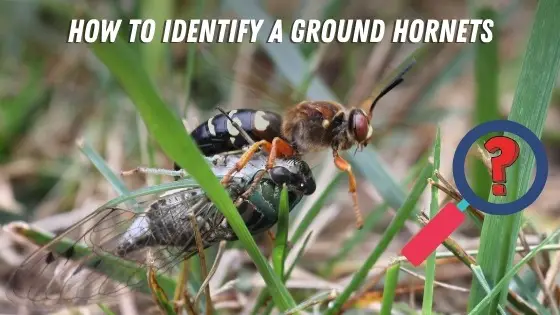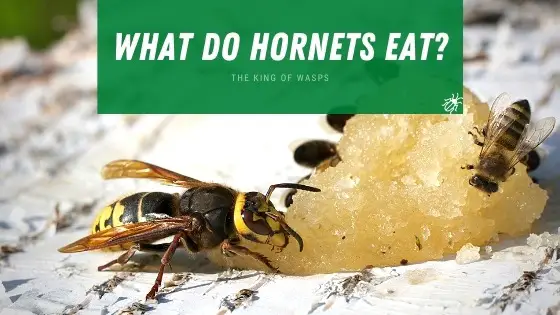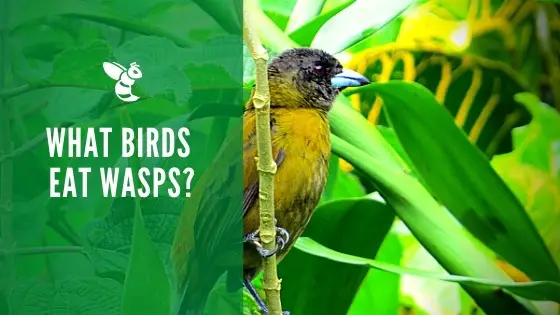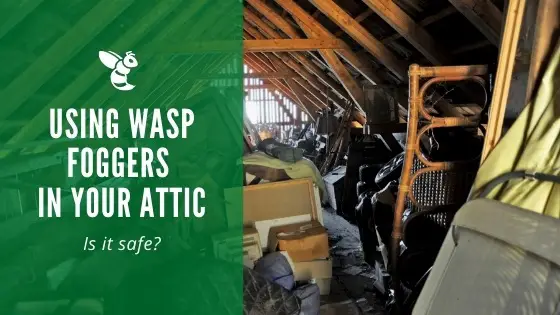Ground Hornet Identification

While other insects in this genre like to live in colonies, the ground wasp is much more solitary in nature. They can form their nest just about anywhere outside on the ground. You can find them within your flower beds, in your backyard, around your patio, or in a wooded area near your property.
They burrow into the ground to form a nest that is approximately 1.5 feet below the surface. Do you notice hornet-like insects buzzing around a hole in the ground and wonder if you have a hornet infestation?
The more information you can learn about these creatures, the easier it will be for you to decide how to deal with them.
What Do Ground Hornets Look Like?
Ground hornets are nicknamed cicada killers thanks to their very large size and powerful body. They are one of the largest digger wasps that we have in the United States.
Their wings have a brown/red tinge to them. The female ovipositor is both the stinger and the body part that the female ground hornet will use to deposit her eggs inside the nest. You may be able to spot a ground hornet carrying a cicada or other insect back into their nest in the ground so they can feed their young.
Are Ground Hornets Dangerous?
Unfortunately, ground hornets sting. They can sting anyone or anything that is posing a threat to them. If you’re near the opening of their nest, and they feel like you’re getting too close, you can expect to dodge their attack. There is a portion of the population that has severe allergic reactions to the ground hornet’s sting. This can create a very dangerous situation, especially if children and pets are nearby.
Are Ground Hornets Beneficial?
This is a two-part question in essence. Ground hornets can be beneficial because they can help nature thrive. They can pollinate flowers as they travel from one to the next, but they also can kill off other insects that require some population control. Certain insects like cicadas and beetles can be a nuisance to have around, especially in large numbers.
Hornets will keep these numbers to a minimum, so you won’t see much destruction to your property or landscaping. Not to mention, insects like large cicadas can be quite creepy. It’s nice to have a natural defense mechanism around in the form of ground wasps.
What Do Ground Hornets Eat?
The adult ground hornet will eat nectar from plants as their source of food, but larvae are fed the carcasses of insects like cicadas, ants, bees, flies, aphids, crickets, spiders, and caterpillars. Whatever insect can be obtained will quickly become a food source for young ground wasps.
How to Get Rid of Ground Hornets
Ground hornets are much more common in the northern states in the U.S., but they have been found down south as well. If you’re suspecting a ground hornet infestation, look for holes in your yard that are around 1.5 inches in diameter. While they are solitary, they may dig holes that are near each other.
You’ll see a cluster of holes if this is the case. When a ground hornet digs their nest, they will leave a horseshoe-shaped ring around the entrance to find their way back. They also like the warm sun, so you may even see their holes right out in the open where the sun is shining down on them.
You want to proceed very carefully if you’re going to remove a ground hornet nest on your own. If the hornet is inside of the nest, it may come out aggressively if it finds you trying to poison it on the outside. If you have multiple hornets in the area, they may all come at you at once if they’re not sure which hole you’re going after.
If you want to avoid chemicals in your yard, you can create a concoction of dish soap and very hot water. You pour the substance down the holes, and it will deter the hornets from coming back. You may need to repeat the process a few times over the next few days to have the best results. Just make sure to retreat inside quickly once you pour the liquid into the nests.
Conclusion
You can prevent ground hornets from making your yard their home by keeping your yard watered and properly groomed. Ground hornets prefer loose soil since this is much easier for them to dig into.
If you roll your yard each year, this will provide a dense surface that they may not want to target. You can also plant a lot of landscaping around your home. Since Hornets prefer sun, they’ll skip the shady areas. You can also try to mulch areas that you want to keep ground hornets away from.




